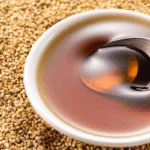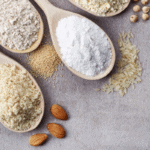Wine has transformed classic dishes such as coq au vin, boeuf Bourguignon, and cioppino into timeless classics. In the kitchen, it is indispensable as it can be used to cook sweet and savory foods.
Why Cook With White Wine?
Cooking with white wine is more than just blending its flavors with other ingredients. Heat and alcohol interact in a way that affects wine to give it its distinctive aroma.
It is these qualities that distinguish wine and alcohol in cooking from non-alcoholic liquids. It is often recommended to deglaze with white wine rather than water, juice, or stock because it can dissolve both oil- and water-soluble compounds.
While too much alcohol will dominate a dish, the right amount will bring out the best flavors and aromas. Wine can give beef stew and steamed mussels a more complex and concentrated flavor.
In fondue, for example, wine prevents the cheese from becoming stringy or sluggish. Specifically, tartaric acid binds to calcium in this case to prevent coagulation. (Tip: You can add a bit of wine to coagulated cheese sauces.)
While you don’t have to use the same wine you’ll drink with the meal, it should be something you would enjoy. The cooking process will enhance the qualities in bad wine. Alternatively, a better wine will not necessarily make a better dish by default because many of its subtler complexities are lost or altered during cooking.
Avoid supermarket “cooking wines” at all costs. They often contain unnecessary salt, sugar, and preservatives, and they don’t offer significant savings over real wine.
Sugars and acids in wine concentrate as it cooks. Avoid jammy reds and off-dry whites in savory dishes, as they can become syrupy and imbalanced.
In most cases, red or white wine (more about that below) are best for cooking, although there are some desserts that require sweet wine. For example, choose those that have good acidity and little to no oak and that are medium- to full-bodied. When cooked, very oaky wines can become bitter. If you are looking for best white wine for cooking, we have some recommendations for you.
Cooking with Wine Burns Off All the Alcohol?
While cooking with white wine, it’s important to remember that there will always be some alcohol left. Since alcohol has a lower boiling point than water (173°F vs. 212°F), some will evaporate faster than other liquids in a dish. However, alcohol molecules also bond with water molecules, so they won’t all magically disappear at 173°F.
It is time that really drives alcohol out of a dish. A pan’s deglazing or flambéing process burns off about 25 percent of the alcohol immediately, but these quick-heat techniques preserve 75 percent of the alcohol content.
After 15 minutes of baking as part of a dish or simmering or stirring into another liquid (anything hotter than alcohol’s 173°F boiling point), alcoholic content reduces to roughly 40 percent. Evaporation begins to slow down after this, decreasing by only about 5 percent for every 15 minutes of cooking during the first hour.
During the second hour, evaporation slows even further, taking roughly 30 minutes to reduce the total amount of alcohol by another 5%. However, after about 2.5 hours of baking, braising or simmering a dish with an alcoholic base, the alcoholic content should be negligible, with at least 95% of it cooked out.
Cook With White Wine
White wine is an excellent addition to light broths or citrus dishes. The brightness of very crisp wines is usually welcome in the final dish, so don’t be afraid of them. Additionally, substituting white wine for red wine in stews and braises can lighten the dish.
White wine and dairy go well together, as demonstrated by fondue. By substituting wine for some or all of the vinegar in classic beurre blanc and Béarnaise sauces, they will become less acidic and more complex. Adding wine to a cream-based sauce cuts its richness and adds depth. Consider whisking a little white wine into your scrambled eggs or omelet before cooking.
Was this helpful?
Hi there! I’m a food enthusiast and journalist, and I have a real passion for food that goes beyond the kitchen. I love my dream job and I’m lucky enough to be able to share my knowledge with readers of several large media outlets. My specialty is writing engaging food-related content, and I take pride in being able to connect with my audience. I’m known for my creativity in the kitchen, and I’m confident that I can be the perfect guide for anyone looking to take their culinary journey to the next level.







